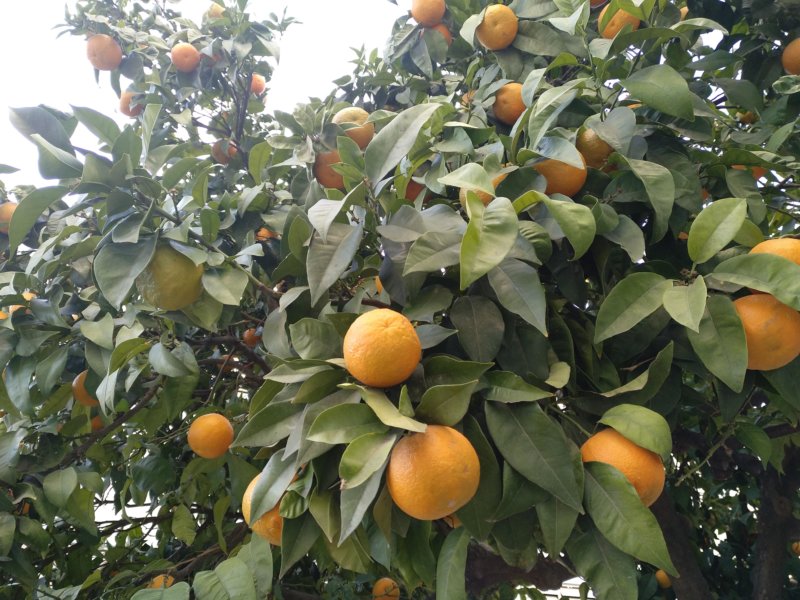Seville, the first producer of Bitter Orange worldwide
Beatriz Carmona, Marketing Manager and the citrus fruit-derived department of Bordas explain how bitter orange has become a globally recognized symbol of Seville, capital of the Andalusia region (Spain). Bordas is one of the European leaders in the production of plant extracts and essential oils and industrial partner of ID4FEED*.
Unintentionally, when you think about Seville, even if you have never been there, a picture with orange trees in blossom will come into your mind. And, just with a little effort, you could even smell its flower, whose harvest usually lasts very fast, between one or two weeks.
The bitter orange tree, Citrus × aurantium; L., has been cultivated for many years, principally for its fragrance and its culinary destination.
In fact, there are currently around 48.000 orange trees scattered throughout all the city, including parks and streets.
“Bitter orange fruits are very interesting for fragrance industries, where essential oils are very common used”, explains Beatriz Carmona who adds: “From its dry peels, we obtains two flavonoids, Citrus Bioflavonoid Complex and Neohesperidin, widely used in the pharmaceutical industry, animal feed and welfare sector as nutraceutical ingredients”.
Increase in demand
Despite the fact that the bitter orange tree is extended in many regions all over the world such as North Africa, some areas of South America, the Middle East, China or Australia, Seville is the first producer of Bitter Orange worldwide and that is why it has become a globally recognised symbol of Seville.
The collecting season usually takes place during the cold months from the beginning of December to the end of March, when fruits are maturing.
After the hard years of the crisis (2012-2016) in which the market suffered a significant decline in both volume and prices, the market has been evolving positively upward. The campaign 2017-2018 was so dry that it was extremely short, and very few kilos of bitter oranges were produced.
The 2018-2019 season harvest has finished better comparing with the previous one. This may be due to, among other reasons, an increase in demand as well as a decrease in supply as the number of cultivated areas of bitter orange trees has decreased. The main reasons of the decrease in supply are that farmers changed their orange tree plantations to others more profitable crops, and that the labour cost has also suffered an evolution becoming higher than ever.
This year 2019 has been extremely dry and hot so, compared to the great harvest of the previous campaign, the production has notably decreased. However, in global numbers, it seems to be a normal year, with just a decrease between 5-10% compared to the average crops of recent years.
The high temperature and the lengthy periods of drought have also caused a disharmonization in the ripening of the fruit. Due to this, there are some areas where the fruit has ripened earlier, and others in which it is still somewhat delayed.
On the other hand, this stress has also positive consequences, producing fruits with higher concentration of health-promoting nutrients, greater quality indices and better organoleptic characteristics.
In any event, Bordas’ production has kept constant as a result of its management policy and modern facilities such as irrigation and fertilization systems and additional nutritional support, which cushion these types of climate effects in the crop.
Bordas company has its own large orange tree plantations in its family lands of more than 300 ha, where orange trees traditionally grow. Bordas produces both conventional and organic bitter orange. In the case of the conventional, the use of pesticides is minimized carrying out an integrated management of pests.
The fruit collecting is a hard hand-picked work because it is necessary to select them one by one to avoid damage them. After that, they are transported well in bulk either in box, to Bordas’ factory where best quality fruits are meticulously chosen.
During the whole process, cleaning and hygiene is fundamental, as well as the control and traceability of phytosanitary treatments.
Depending on the final and the country they are destined to, fruits can be transported either normal, refrigerated or frozen.
Bitter oranges are traditionally interesting for foreign markets, mainly for countries such as the United Kingdom, Germany, France, New Zealand and Australia.
United Kingdom is still the largest consumer of bitter orange, where it is used to manufacture homemade marmalades for breakfast, bakery and cakes.
* In 2012, Bordas made the decision to build a consensus and challenging collaboration with ID4FEED for providing together technical solutions to promote the health, performance and animal welfare.
Bitter orange fruits are very interesting for fragrance industries,
where essential oils are very common used

